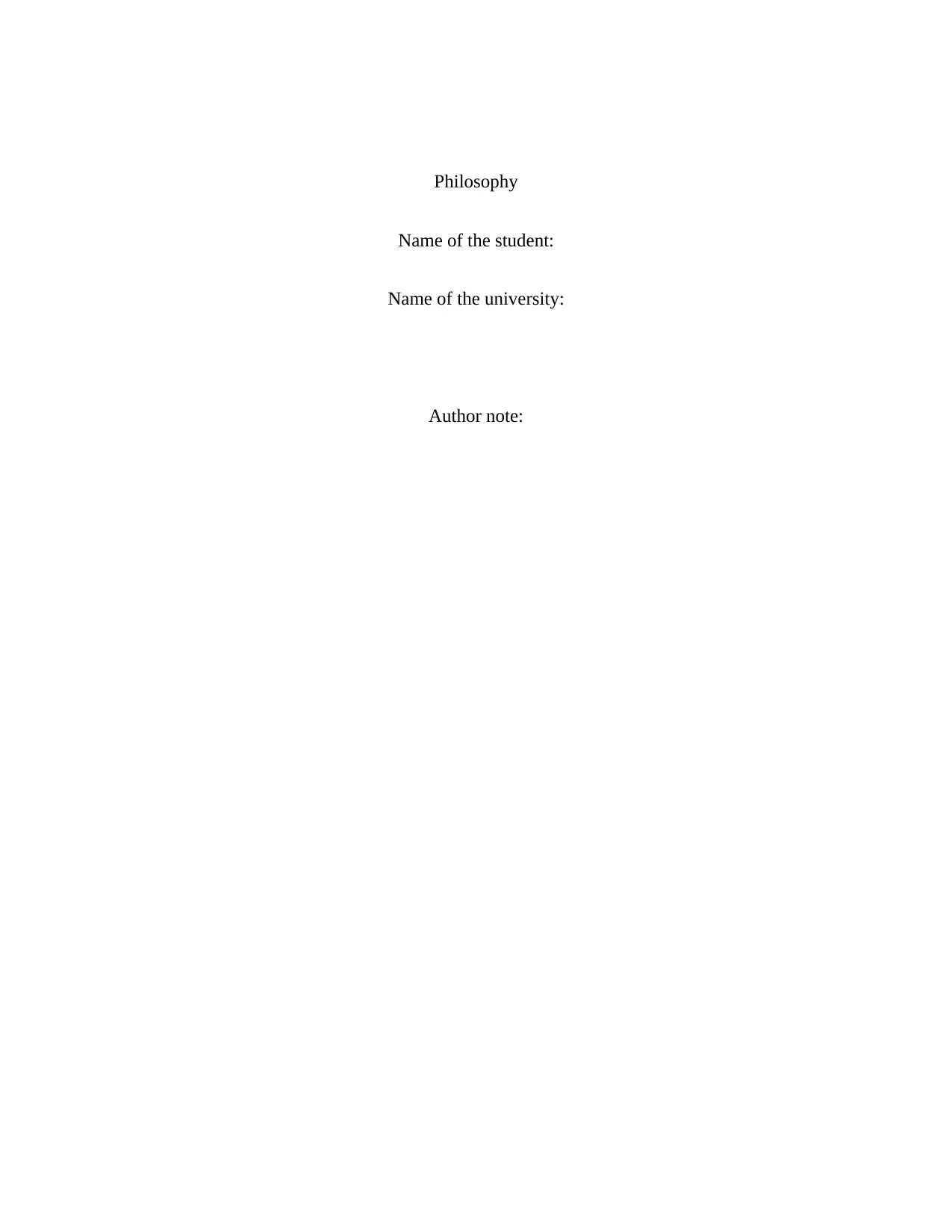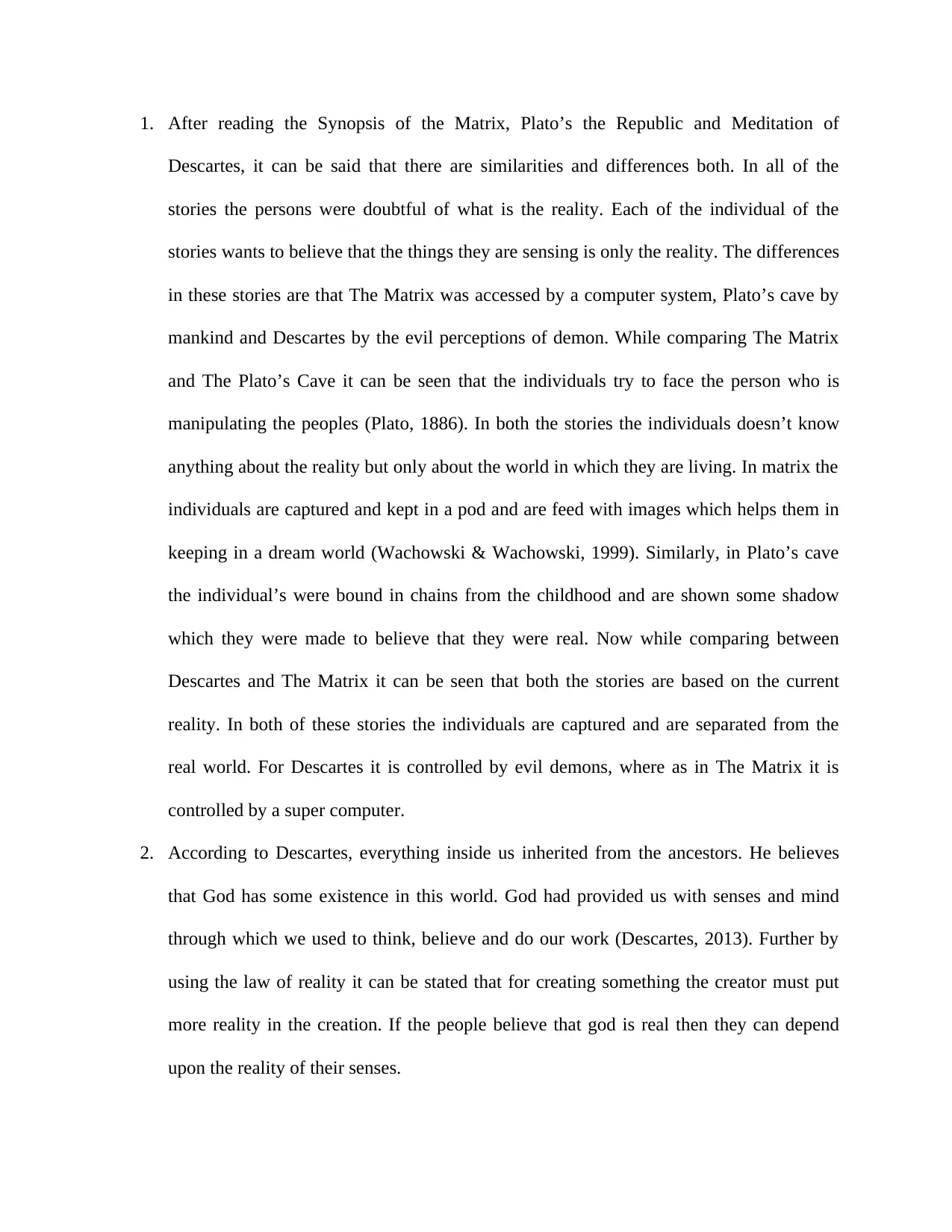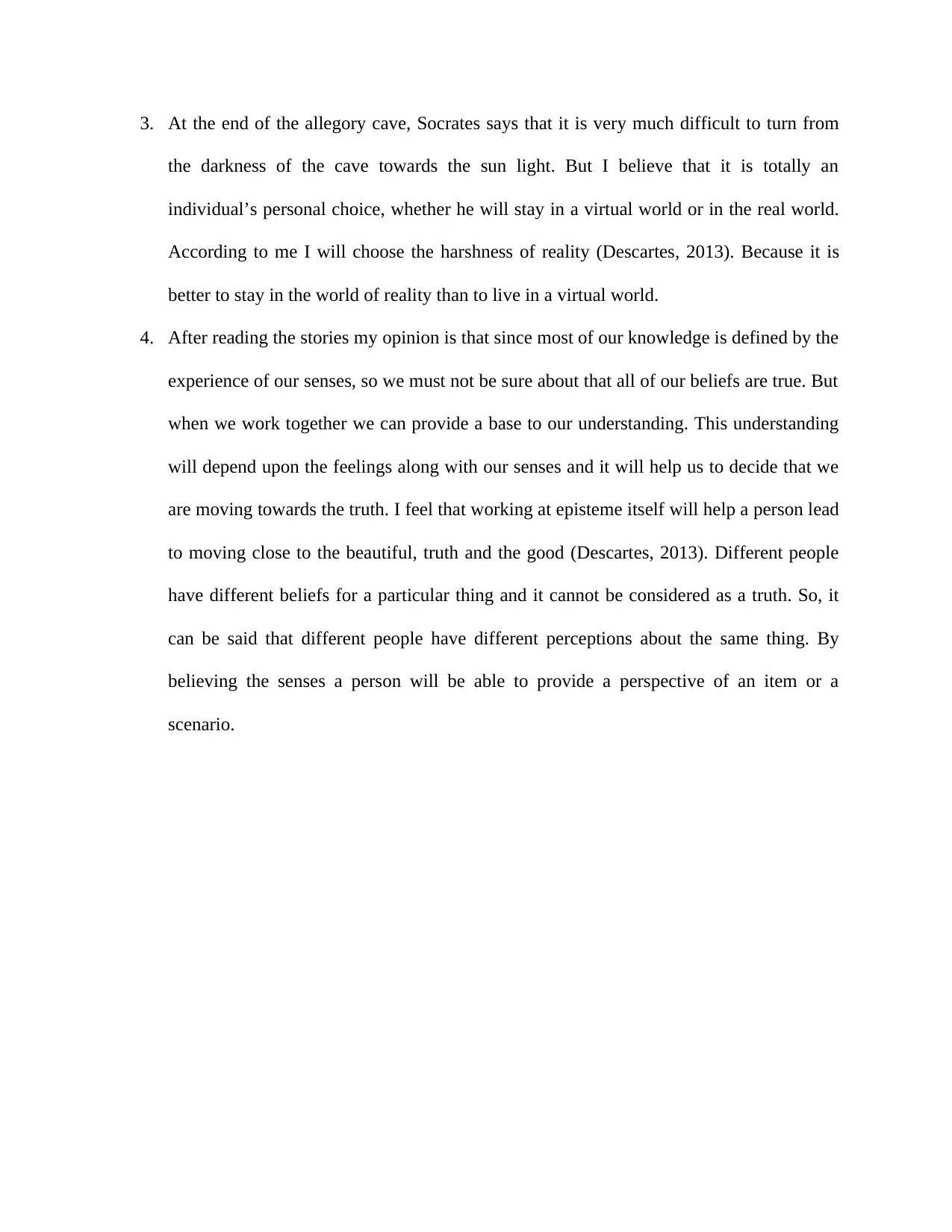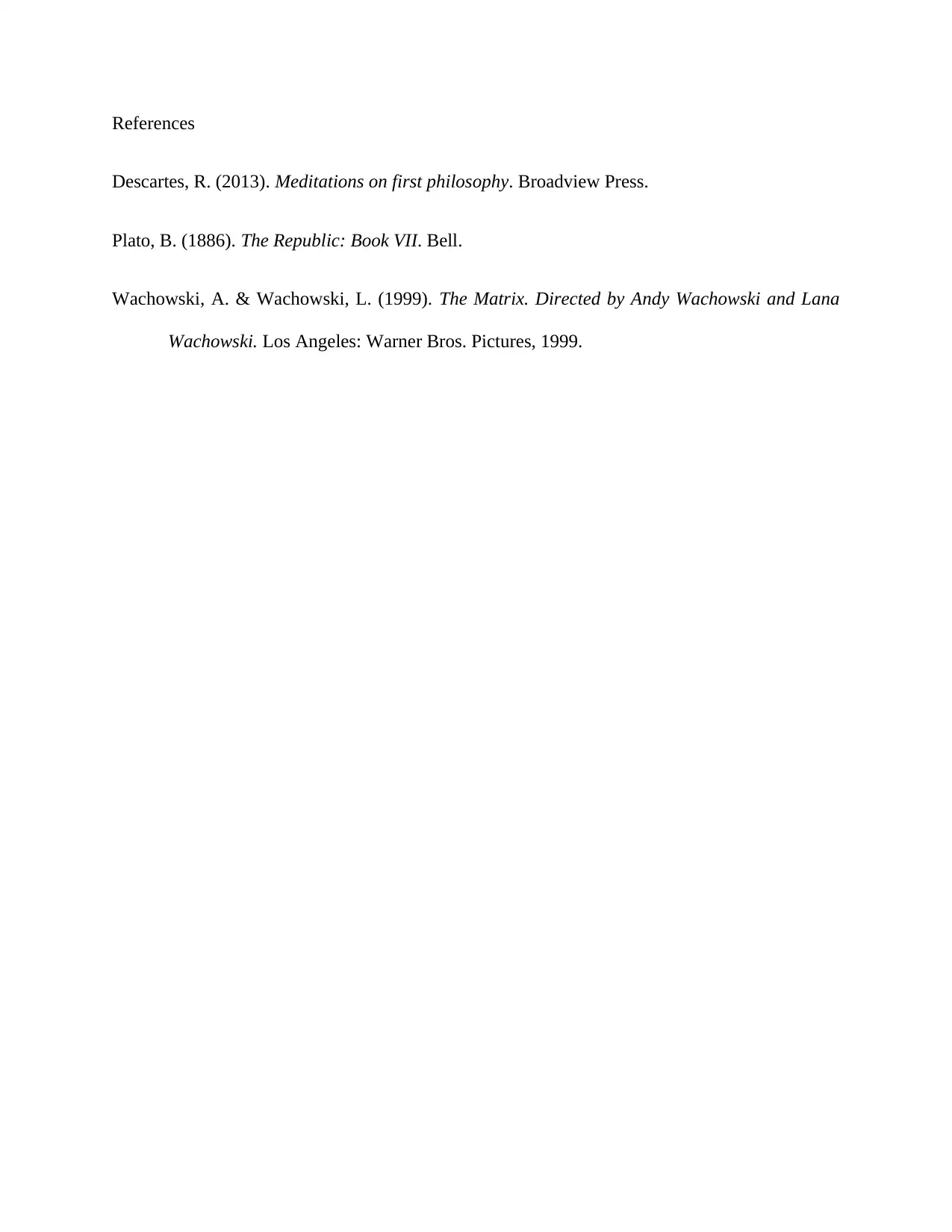Philosophical Analysis: The Matrix, Plato's Cave, and Descartes
VerifiedAdded on 2020/03/16
|4
|709
|33
Essay
AI Summary
This essay offers a comparative analysis of philosophical concepts presented in The Matrix, Plato's Republic, and Descartes' Meditations on First Philosophy. The author explores the similarities and differences in how each work addresses the nature of reality, perception, and the search for truth. The essay highlights how each narrative, whether through a computer simulation, a metaphorical cave, or the doubts of an individual, questions the reliability of our senses and the nature of what we perceive as real. The author discusses the influence of ancestral knowledge and the role of God, as described by Descartes, and contrasts it with the simulated reality of The Matrix and the allegorical world of Plato's Cave. The essay concludes with the author's personal preference for embracing the harshness of reality over a virtual existence, while acknowledging the importance of collective understanding and the pursuit of truth through experience and reflection. The essay also provides references to the primary sources used in the analysis.
1 out of 4










![[object Object]](/_next/static/media/star-bottom.7253800d.svg)